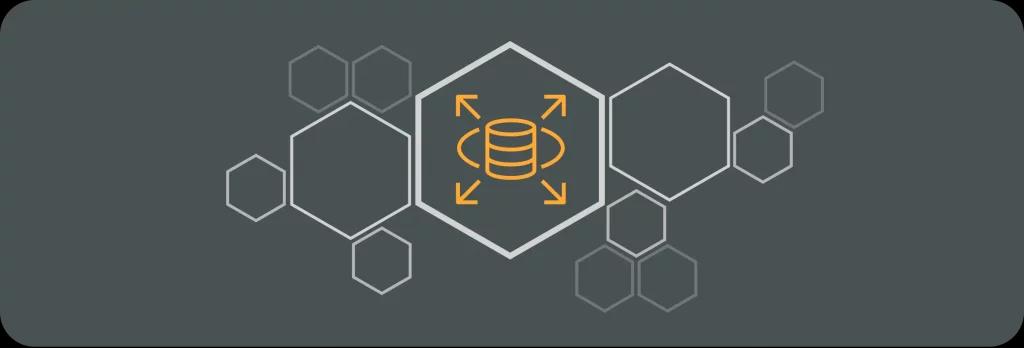DevOps Definitions: Lean IT


In today’s fast-paced and ever-changing technological landscape, organizations are constantly seeking ways to drive efficiency, streamline processes, and improve their overall operational performance. One approach that has gained significant prominence is the integration of DevOps and Lean IT methodologies. In this article, we will delve into the concept of DevOps and the role of Lean IT in its implementation, explore the benefits of this integration, and discuss some of the challenges that organizations may face during the transformation process.
Understanding the Concept of DevOps
Before we dive into the specifics of Lean IT and its application in DevOps, it’s important to have a solid understanding of what DevOps actually is. At its core, DevOps is a set of practices that seeks to bridge the gap between software development and operations teams by fostering collaboration, automation, and continuous delivery.
The Evolution of DevOps
Over the years, DevOps has evolved from being a niche approach to software development into a widely adopted methodology. Initially, software development and operations teams operated in silos, resulting in bottlenecks and delays. However, as organizations recognized the need for faster and more efficient software delivery, the concept of DevOps emerged as a way to break down these barriers and promote a collaborative and integrated approach.
One of the key factors that contributed to the evolution of DevOps was the increasing complexity of software systems. As applications became more intricate and interconnected, it became clear that the traditional approach of separate development and operations teams was no longer sufficient. The need for seamless collaboration and communication between these two groups became paramount.
Key Principles of DevOps
DevOps is guided by a set of key principles that serve as the foundation for its implementation. These principles include continuous integration and delivery, automation, infrastructure as code, monitoring, and feedback loops. By adhering to these principles, organizations can achieve faster deployment cycles, increased efficiency, and improved customer satisfaction.
Continuous integration and delivery are fundamental to the DevOps philosophy. This practice involves integrating code changes frequently and delivering software in small, incremental updates. By doing so, organizations can reduce the risk of introducing errors and ensure that new features and bug fixes are deployed to production quickly.
Automation is another crucial aspect of DevOps. By automating repetitive tasks, such as testing and deployment, organizations can free up valuable time and resources. This not only increases efficiency but also reduces the likelihood of human error, resulting in more reliable and stable software.
The Intersection of Lean IT and DevOps
Now that we have a clear understanding of DevOps, let’s explore how Lean IT fits into the picture. Lean IT is an approach that aims to eliminate waste, optimize processes, and improve the flow of value to customers. By integrating Lean IT principles into the DevOps framework, organizations can further enhance their efficiency and deliver even greater value.
Defining Lean IT
At its core, Lean IT is about maximizing customer value while minimizing waste. It draws inspiration from Lean Manufacturing principles, which were first developed by Toyota. Lean IT emphasizes the importance of eliminating non-value-added activities, optimizing workflows, and continuously improving processes.
When implementing Lean IT, organizations focus on identifying and eliminating waste in their IT operations. This waste can take various forms, such as unnecessary waiting time, redundant processes, or excessive inventory of hardware and software. By streamlining these processes and eliminating waste, organizations can create a more efficient and cost-effective IT environment.
The Synergy Between Lean IT and DevOps
Lean IT and DevOps share many common goals and principles, making them a natural fit for integration. Both methodologies emphasize the importance of collaboration, automation, and continuous improvement. By bringing these two approaches together, organizations can create a powerful synergy that drives efficiency, quality, and customer satisfaction.
One of the key areas where Lean IT and DevOps intersect is in the concept of continuous improvement. Lean IT encourages organizations to constantly evaluate and improve their processes, while DevOps promotes a culture of continuous learning and experimentation. By combining these two approaches, organizations can create a culture of continuous improvement that drives innovation and agility.
Another area of synergy between Lean IT and DevOps is in the focus on automation. Lean IT advocates for the automation of repetitive and manual tasks, freeing up resources for more value-added activities. DevOps, on the other hand, promotes the use of automation tools and practices to streamline the software delivery process. By leveraging automation in both IT operations and software development, organizations can achieve greater efficiency and reduce the risk of errors and delays.
The Role of Lean IT in DevOps Transformation
Now that we understand the principles of Lean IT and its synergy with DevOps, let’s explore the specific role it plays in the transformation process.
Streamlining Processes with Lean IT
One of the key contributions of Lean IT to the DevOps transformation is its ability to streamline processes. By analyzing and optimizing workflows, organizations can identify and eliminate bottlenecks, reduce lead times, and enhance overall efficiency. This results in faster delivery cycles and improved customer satisfaction.
Enhancing Efficiency in DevOps with Lean IT
Lean IT also brings efficiency to the DevOps framework by promoting automation. By automating repetitive tasks, organizations can free up their resources to focus on more value-added activities. This not only improves productivity but also minimizes the risk of human error.
Furthermore, Lean IT provides a structured approach to continuous improvement within the DevOps transformation. Through the application of Lean principles such as Kaizen, organizations can constantly evaluate and refine their processes to achieve higher levels of efficiency and effectiveness. This iterative approach allows for ongoing enhancements and optimizations, ensuring that the DevOps transformation remains a dynamic and evolving journey.
In addition to streamlining processes and enhancing efficiency, Lean IT also fosters a culture of collaboration and cross-functional teamwork. By breaking down silos and encouraging open communication, organizations can create an environment where different teams work together seamlessly towards a common goal. This collaborative approach not only improves the speed and quality of software delivery but also promotes a sense of shared ownership and accountability.
Moreover, Lean IT emphasizes the importance of data-driven decision-making in the DevOps transformation. By collecting and analyzing relevant metrics, organizations can gain valuable insights into their processes and make informed decisions to drive continuous improvement. This data-driven approach enables organizations to identify areas of improvement, prioritize initiatives, and measure the impact of their DevOps transformation efforts.
The Benefits of Integrating Lean IT into DevOps
The integration of Lean IT into the DevOps framework offers a wide range of benefits for organizations seeking to optimize their software delivery processes.
But what exactly does Lean IT bring to the table? Let’s dive deeper into the topic and explore some additional advantages that come with this integration.
Improved Operational Efficiency
By implementing Lean IT practices in DevOps, organizations can achieve significant improvements in operational efficiency. Streamlined processes, reduced waste, and increased automation result in faster and more reliable software delivery, ultimately enhancing overall operational performance.
Lean IT emphasizes the elimination of non-value adding activities and the reduction of unnecessary complexity. This approach allows teams to focus on what truly matters, maximizing their productivity and minimizing time wasted on unproductive tasks.
Enhanced Quality and Speed of Delivery
Integrating Lean IT into DevOps also promotes the delivery of high-quality software in shorter timeframes. By continuously monitoring and refining processes, organizations can ensure that defects are detected early, enabling faster resolution and increased customer satisfaction.
Lean IT encourages a culture of continuous improvement, where teams are empowered to identify and address issues as they arise. This proactive approach not only improves the quality of the software being delivered but also reduces the time spent on rework and bug fixing.
Furthermore, Lean IT emphasizes the importance of customer feedback and involvement throughout the software development lifecycle. By incorporating customer insights early on, organizations can align their deliverables with customer expectations, resulting in a more satisfying end product.
Challenges in Implementing Lean IT in DevOps
While the benefits of integrating Lean IT into DevOps are undeniable, organizations may encounter certain challenges during the transformation process.
One of the key challenges in implementing Lean IT in DevOps is overcoming resistance to change. Change can be met with resistance, especially when it involves transforming established workflows and practices. To successfully implement Lean IT in DevOps, organizations must invest in change management efforts and ensure that all stakeholders understand and support the transformation goals. This may involve providing training and education on the benefits of Lean IT and DevOps, as well as addressing any concerns or fears that individuals may have about the changes.
Another challenge organizations may face is ensuring continuous improvement. Continuous improvement is a core principle of Lean IT and DevOps, but sustaining this mindset and driving continuous improvement can be a challenge. It requires organizations to create a culture of learning, innovation, and adaptability. This may involve implementing mechanisms for gathering feedback and ideas from employees, as well as providing opportunities for professional development and growth. By fostering a culture of continuous improvement, organizations can ensure that the benefits of Lean IT are realized and maintained over time.
Additionally, organizations may also encounter challenges in aligning the goals and objectives of Lean IT with those of DevOps. Both Lean IT and DevOps aim to improve efficiency, reduce waste, and deliver value to customers. However, there may be differences in the specific approaches and methodologies used. It is important for organizations to find common ground and ensure that the implementation of Lean IT in DevOps is aligned with the overall goals and objectives of the organization.
Conclusion
In conclusion, the integration of Lean IT into the DevOps framework offers organizations a powerful approach to drive efficiency, optimize processes, and improve overall operational performance. By understanding the concept of DevOps, exploring the principles of Lean IT, recognizing their synergy, and overcoming implementation challenges, organizations can leverage the benefits of this integration to deliver high-quality software in shorter timeframes and ultimately achieve greater customer satisfaction.
Your DevOps Guide: Essential Reads for Teams of All Sizes
Elevate Your Business with Premier DevOps Solutions. Stay ahead in the fast-paced world of technology with our professional DevOps services. Subscribe to learn how we can transform your business operations, enhance efficiency, and drive innovation.






